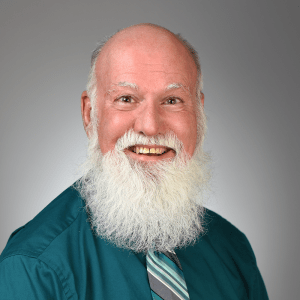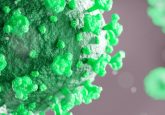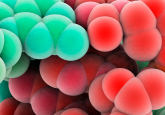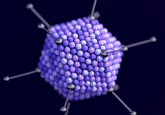STEM Tea | Mentoring junior faculty: how to handle the research tidal wave
 In this episode of the STEM Tea podcast, AJ Hinton is joined by guest co-host Andrea Marshall, a Staff Scientist in the Department of Physiology and Biophysics at Vanderbilt University (TN, USA) studying age-related changes in mitochondrial networks. The pair speak with David Drake (left), Professor of microbiology and infectious diseases in the Iowa Institute for Oral Health Research at the University of Iowa College of Dentistry (IA, USA), where his research focuses on the development of the oral microbiome in young children.
In this episode of the STEM Tea podcast, AJ Hinton is joined by guest co-host Andrea Marshall, a Staff Scientist in the Department of Physiology and Biophysics at Vanderbilt University (TN, USA) studying age-related changes in mitochondrial networks. The pair speak with David Drake (left), Professor of microbiology and infectious diseases in the Iowa Institute for Oral Health Research at the University of Iowa College of Dentistry (IA, USA), where his research focuses on the development of the oral microbiome in young children.
In this episode, however, the focus is on mentoring. Throughout David’s 35-year professorship, he has given back to the scientific community by mentoring junior faculty and teaching others how to be the best mentors they can be. He highlights the importance of finding work–life harmony, setting boundaries and having empathy for those starting their scientific careers. With references to Neil Young and Alex Soojung-Kim Pang, David shares the life lessons that have stuck with him throughout his career.
- Introductions: 00:00–01:51
- A day in the life of David Drake: 01:51–03:54
- Why mentoring is important to David: 03:54–07:00
- A musical meander down memory lane – the relevance of Neil Young’s “Old Man”: 07:00–07:57
- What are David’s most significant accomplishments as a Professor? And how does he share lessons from these accomplishments with his mentees? 07:57–12:10
- What advice would David give to an early career scientist? 12:10–14:31
- What should early career scientists look for in a mentor? And how can senior faculty be the best mentors they can be? 14:31–18:46
- Meet the mentors who influenced David’s life and career: 18:46–22:00
- The life lessons that have stuck with David throughout his career: 22:00–24:53
- Why is learning how to be a better mentor a worthwhile pursuit? 24:53–27:02
- The “welcome to science, most of your stuff’s not going to work” lesson and how to teach it: 27:02–33:00
- A mentor’s guide to setting boundaries and communicating them without discouraging mentees: 33:00–36:39
- How does David spend his free time? 36:39–40:06
- Navigating personal time, boundaries and breaks from work: 40:06–41:03
- How does David encourage mentees to slow down? 41:03–45:17
- The importance of reading: 45:17–48:37
- Rest: Why You Get More Done When You Work Less by Alex Soojung-Kim Pang
- Shorter: Work Better, Smarter and Less – Here’s How by Alex Soojung-Kim Pang
- What is David drinking? 48:37–50:14
- Outro: 50:14–51:48





